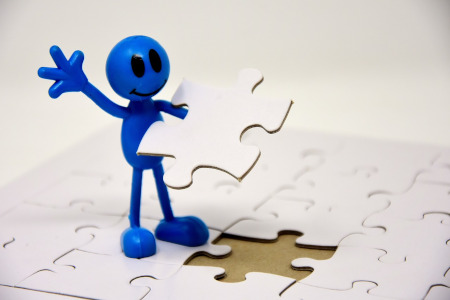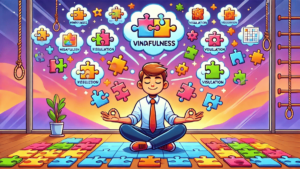Training for speed puzzling events involves a combination of honing your puzzle-solving skills, enhancing cognitive abilities, and developing strategies to navigate puzzles efficiently.
Table of Contents
I should know. The speed puzzling events I’ve been to and done well (relatively well as there is always someone faster) was best done with practice and training. I’ve worked with partners and on teams where I had to do my part and try to hurry. I might not be an athlete, but it’s just as intense when it comes to playing speed puzzling events. You have to be on the top of your game. No exceptions!

Here are some key training tips for speed puzzling events:
Have Regular Practice Sessions.
Consistent Puzzle Solving makes a strong player Engage in regular puzzle-solving sessions to build familiarity with different puzzle types, piece shapes, and patterns. The more you practice, the better you’ll become at quickly identifying and connecting pieces.
Diversify Puzzle Types.
Explore Various Puzzles and be ready for any brand. Train with a variety of puzzles, including different sizes, piece counts, and themes. This diversity will prepare you for the challenges presented in various speed puzzling events.
Time Yourself and Keep a Log.
Set Time Limits and work hard toward your goals. Incorporate timed sessions into your practice routine. Set realistic time limits for completing puzzles, learn new ideas with speed puzzle tips and gradually reduce the time as you improve. This simulates the time constraints of actual speed puzzling events.
Focus on Edge Pieces First.
Edge Piece Mastery is a great way to really set your strongest time. Start your training by focusing on assembling the edge pieces. Efficiently connecting the border sets a strong foundation for the rest of the puzzle.
Develop Pattern Recognition as You Learn New Brands.
The best way to Visualize Patterns is to practice. Train your brain to recognize patterns quickly. Practice identifying colors, shapes, and other distinctive features that will help you locate and connect pieces with speed and accuracy.
Peripheral Vision Training is key to success.
Train your peripheral vision to capture details beyond your immediate focus. This skill helps you keep track of multiple puzzle sections simultaneously, reducing the need to shift your gaze frequently.
Dynamic Puzzle Rotation is a Tool To remember.
Regularly Rotate Puzzles to see the pieces from every angle. If you can’t move the puzzle, move yourself! Practice regularly rotating the puzzle during solving. This dynamic approach helps you view the puzzle from different angles and enhances your ability to identify connections.
Simulate Event Conditions to Find a Comfortable Factor.
Create Competitive Scenarios so you can train your emotions to be on target. Simulate the conditions of speed puzzling events during your practice. Set up a dedicated space, use a timer, and challenge yourself under conditions similar to actual competitions.

Mindfulness and Visualization is part of the process.
Mindful Rehearsal really does help the process. Practice mindfulness techniques to stay focused and present during puzzle-solving. Visualize successful puzzle-solving scenarios to build confidence and mental readiness.
Team work makes the dream work.
If participating in team events, practice collaboration with teammates. Develop strategies for efficient communication and division of puzzle sections.
Adapt to Different Puzzle Sizes.
Train for Variety of puzzle sizes and brands. Even if you find it easy, every puzzle builds confidence. Work with puzzles of different sizes and piece counts to adapt to various challenges. Being comfortable with puzzles of different complexities is crucial in speed puzzling events.
Participate in Mock Competitions to Enhance Your comfort level.
Organize or participate in mock speed puzzling competitions. This provides valuable experience under competitive pressure and helps refine your strategy.
See You at a Puzzle Competition
Speed puzzling events happen all over the country. The best way to actually get started is to start practicing and give it a try. Remember, consistent and purposeful practice is key to improvement in speed puzzling. Focus on building both speed and accuracy, and continually assess and adjust your training regimen to address specific areas for improvement. I’ll see you there!
